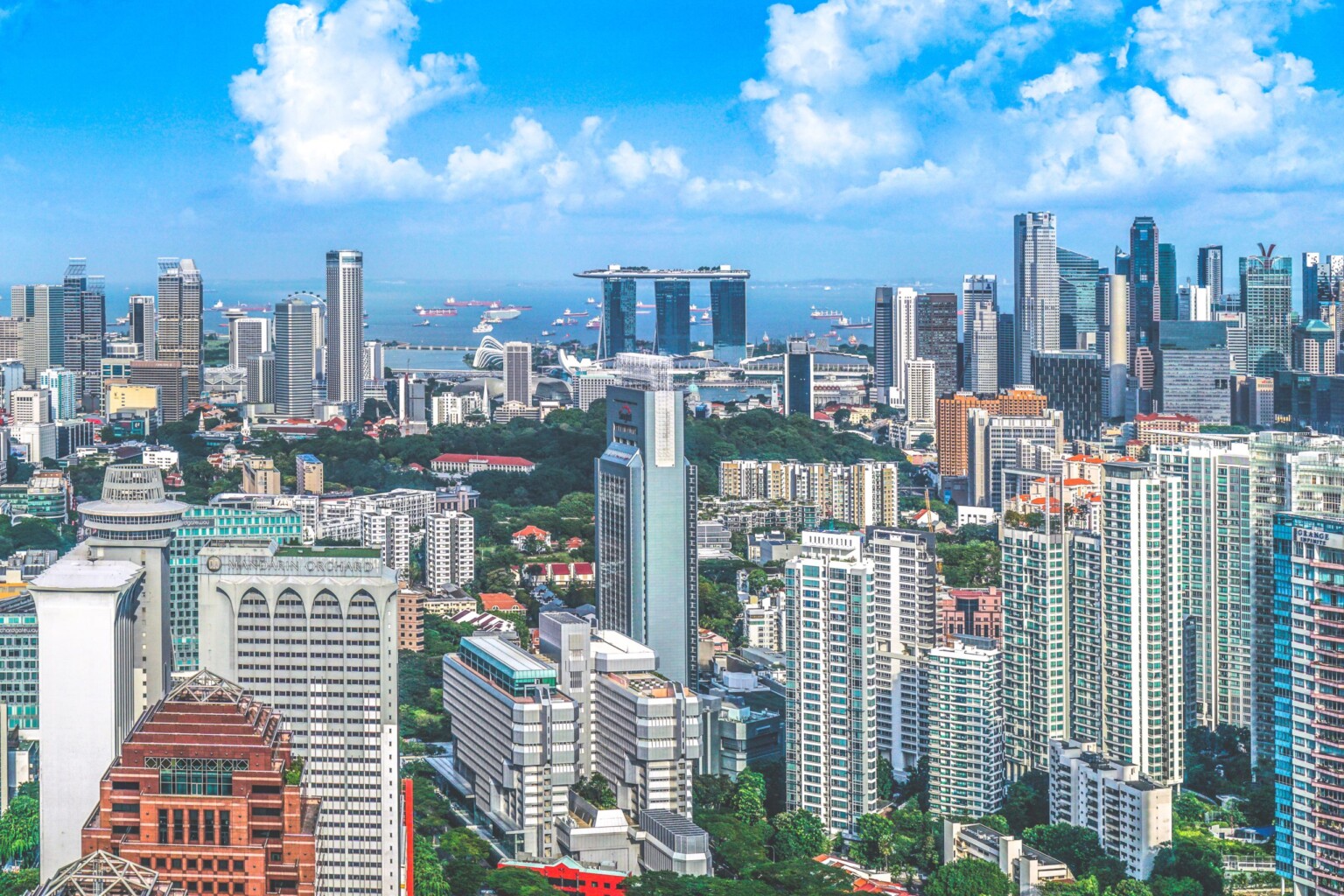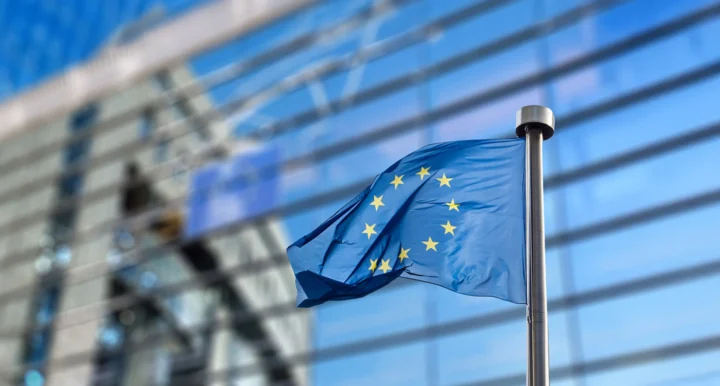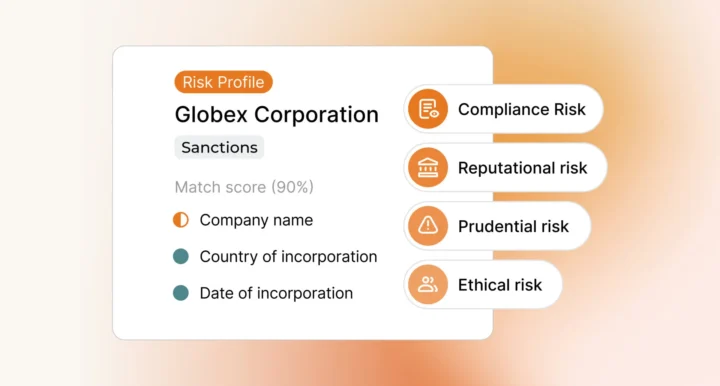The Monetary Authority of Singapore (MAS) plays an important role in Singapore’s financial sector. With that in mind, it is important that companies are familiar with Singapore’s AML/CFT laws, and MAS’ expectations in a changing compliance environment.
The city-state of Singapore is a bustling business hub located at the southernmost tip of the Malay peninsula. A historic trading destination for international partners, and a gateway to Asia-Pacific, Singapore is home to thousands of financial service providers. Amongst those businesses are branches of many of the world’s largest international banking organisations and financial service providers, which collectively hold around $2 trillion in assets.
The funds flowing into Singapore have made it a prominent financial centre, but have also made it a target for financial criminals seeking to launder illegal money. Financial crime in Singapore is a significant concern in the city. In 2020, research suggests that the total cost of financial crime in Singapore was $3.81 billion – up from $3.13 billion in 2019.
To address that threat, Singapore’s government established the Monetary Authority of Singapore (MAS) as the city’s financial regulator, responsible for supervising banks, financial institutions and other obligated entities, and for ensuring compliance with the country’s Anti-Money Laundering (AML) and Counter-Financing of Terrorism (CFT) rules.
To help your business manage its compliance risk in Singapore, we’ve put together a list of the top 5 things to know about MAS.
1. What is the Monetary Authority of Singapore?
MAS is Singapore’s central bank and financial regulator. Amongst its duties as a central bank, MAS informs the city-state’s monetary policy, conducts macroeconomic analysis and manages the exchange rate. As a regulator, MAS provides prudential oversight of Singapore’s banks and financial institutions, issuing operating licences, conducting investigations, and ensuring that financial markets remain safe and stable for consumers.
In that supervisory role, MAS also sets Singapore’s financial rules and regulations, publishing new Acts of law and subsidiary legislation in the Government Gazette. MAS also issues new legal directives to financial institutions and sets out official guidelines on best practice standards for regulatory compliance.
Where MAS finds violations of the law, it has the authority to perform enforcement actions. Those actions may entail warnings, suspension of operating licences, business prohibitions, fines, and even prison sentences.
2. How does MAS regulate AML in Singapore?
MAS is responsible for ensuring compliance with Singapore’s financial regulations. The primary article of AML legislation in Singapore is the Corruption, Drug Trafficking and Other Serious Crimes (Confiscation of Benefits) Act (CDSA). Passed in 1992, the CDSA sets out the legal definition of money laundering and requires banks and financial institutions to comply with a range of reporting and record-keeping obligations – in alignment with the guidance set out by the Financial Action Task Force (FATF).
In 2002, Singapore introduced the Terrorism (Suppression of Financing) Act which imposed new financial compliance regulations relating specifically to the counter-financing of terrorism.
3. Recent Regulatory Changes
One of the most significant recent changes to Singapore’s AML/CFT compliance landscape is the introduction of the Payment Services Act (PSA) in 2020. The PSA was implemented to position Singapore for the future of financial services and extends existing AML/CFT regulations to payment systems and payment service providers. In particular, the PSA imposes regulatory requirements on digital payment tokens which, in practice, means that cryptocurrency service providers must comply with Singapore’s AML/CFT laws.

4. How do Companies Achieve MAS AML Compliance?
Singapore is a member of the FATF. Accordingly, the Monetary Authority of Singapore’s requirements for banks and financial institutions include the need to put a risk-based AML compliance solution in place. Risk-based compliance means that each organisation must assess their customers to determine the level of individual risk that they present. Customers that present a higher level of criminal risk should be subject to more rigorous AML/CFT compliance measures, including enhanced due diligence and more intensive screening procedures.
With those considerations in mind, an effective Singapore AML solution should include the following measures:
Customer identification: Financial institutions must establish and verify their customers’ identities by obtaining official documentation such as copies of birth certificates, driving licences, passports, and company incorporation information. Financial institutions should also seek to determine ultimate beneficial ownership (UBO) where a third-party is acting on behalf of another customer.
Transaction monitoring: In order to detect money laundering, financial institutions should monitor their customers’ transactions for suspicious activity, which might include unusual transaction frequencies, transactions that do not match risk assessments or transactions with high risk jurisdictions. Where money laundering is suspected, companies must submit suspicious activity reports (SARs) to MAS in a timely manner.
PEP Screening: Elected officials and other government employees present a high money laundering compliance risk. Accordingly, companies should screen their customers to determine whether they are politically exposed persons (PEP).
Sanctions screening: Companies in Singapore should ensure their customers are not subject to sanctions measures by screening against the relevant sanctions lists.
Adverse media: Financial criminal activity may be reported in the media before it is confirmed by official sources. With that in mind, companies in Singapore should implement an effective adverse media screening solution in order to capture stories involving their customers.
5. MAS Fintech Regulations
The Monetary Authority of Singapore continuously seeks to implement new financial technology as a means to enhance Singapore’s financial system and promote economic growth. With that in mind, MAS has implemented a range of initiatives to help innovative fintech projects thrive in the city’s regulatory environment. Those initiatives include:
The Personal Data Protection Act: The PDPA sets out data compliance obligations for companies handling customer data in Singapore – including what data can be collected, and what it can be used for.
Cryptocurrency Code of Practice: Cryptocurrency service providers that sign up to the code of practice must apply a set of AML/CFT measures adapted for the provision of cryptocurrency services – including due diligence, transaction monitoring, and screening measures.
Technology Risk Management: In 2021, MAS issued an updated version of its Technology Risk Management Guidelines. The guidance focused on the need for corporate leadership to participate in efforts to protect against cyber-threats, and on ways for financial service providers to better manage third-party cyber risks.
Get in touch to learn how Ripjar can help you comply with MAS regulations.
Last updated: 31 December 2024





